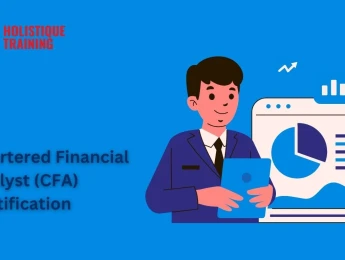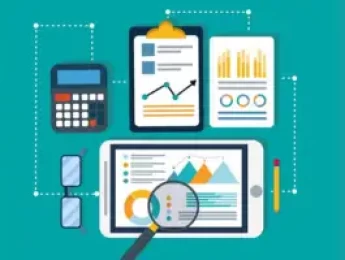The Chartered Management Institute acknowledges that it’s essential for businesses to accurately represent their finances against a business plan that’s been tested for feasibility. This includes considering budgets against key aims and objectives, resourcing requirements, and systems implementation. A business plan needs to have a solid footing and be wholly feasible to secure funding or buy-in from clients, partners, and stakeholders.
Evaluating the feasibility of a project also involves identifying any risk areas and creating plans for contingency and mitigation to allow processes to run smoothly wherever possible. A journey map to understand the pain and pressure points on your consumers and employees is essential to your feasibility assessment as it allows you to arrange your priorities strategically based on what will make the biggest impact by making the smallest changes, working up to the largest changes to aim for continuous improvement later.
The lack of a clear and concise feasibility assessment can lead to missed opportunities, failed projects, and a commercial downturn, which could affect the business’s long-term success. For this reason, professionals link in-depth feasibility studies to project plans and cite them as one of the greatest reasons for boosted profits and greater returns on investment.
Upon completion of this course, participants will be able to:
- Understand the benefits of a feasibility study.
- Determine your project aims and priorities.
- Prepare a feasibility study and report that includes all relevant parameters.
- Discover your main pressure areas and mitigate problems.
- Create contingency plans where required to maintain a level of service.
- Analyse your feasibility study to pick out missed opportunities.
- Develop a fool-proof plan of action based on feasibility and adapt to necessary changes.
- Apply effective methods and tools to enable feasibility reporting.
- Instruct others to consider feasibility when planning projects or assessing finances.
This course is ideal for anyone responsible for creating viable project or business implementation plans within a set budget. However, it would be most beneficial for:
- Operations Managers
- Business Owners
- Directors
- Chief Financial Officers
- Marketing Executives
- Project Managers
- HR Personnel
- Planning Managers
This course uses multiple learning methods to aid understanding and practical analysis. Participants will be presented with real-world feasibility plans to determine key features and pinpoint pain areas within business plans where feasibility wasn’t considered. They will be provided tools and tips to create valid feasibility plans and develop a practical financial plan based on feasibility within their business model.
Day 5 of each course is reserved for a Q&A session, which may occur off-site. For 10-day courses, this also applies to day 10
Section 1: What is Feasibility Planning?
- How feasibility planning can help your business grow.
- Determining your business direction.
- Understanding your driving forces and implementing strategic aims.
- Your business direction and ideas for improvement.
- What is your company missing?
- The components that makeup feasibility analysis.
Section 2: Planning Using Your Company Aims
- What a business plan requires.
- Analysing your competitors.
- PESTEL.
- 5 Forces analysis.
- Protecting a project’s value.
Section 3: Determining Priorities and Pain Points
- SWOT analysis.
- Customer journey mapping.
- Future marketing analysis.
- Budgeting and how to make your plans fit.
- Needs vs. ‘nice to haves.’
Section 4: Motivating and Gaining Support
- Meeting your stakeholders’ needs.
- Social analysis and the view from the outside.
- Creative thinking and problem-solving.
- Generating buy-in and working toward a consistent goal.
- Displaying potential return on investment.
- How interpersonal relationships can aid or hinder progression.
Section 5: Risk Assessments and Contingency Planning
- Identifying risk elements in new processes.
- Risk management scenarios and how to make repairs.
- Creating contingency plans if your risk mitigation doesn’t pay off.
- Sensitivity analysis.
- Technology implementation and capabilities.
- How automation can help.
Section 6: Preparing the Report and Keeping Records
- An options-based analysis.
- Keeping hold of old business plans.
- Review your progress using a working document.
- Understanding priority changes based on feasibility.
- Your cost-benefit analysis.
Section 7: Review and Revisit
- Auditing processes and reviewing trends.
- Customer and client changing requirements and your need to adapt.
- Discounting methods to meet a budget.
- Change choices - selecting the right option and predicting future effectiveness on mutually exclusive plans.
Upon successful completion of this training course, delegates will be awarded a Holistique Training Certificate of Completion. For those who attend and complete the online training course, a Holistique Training e-Certificate will be provided.
Holistique Training Certificates are accredited by the British Assessment Council (BAC) and The CPD Certification Service (CPD), and are certified under ISO 9001, ISO 21001, and ISO 29993 standards.
CPD credits for this course are granted by our Certificates and will be reflected on the Holistique Training Certificate of Completion. In accordance with the standards of The CPD Certification Service, one CPD credit is awarded per hour of course attendance. A maximum of 50 CPD credits can be claimed for any single course we currently offer.
- Course Code MG2-120
- Course Format Classroom, Online,
- Duration 5 days














